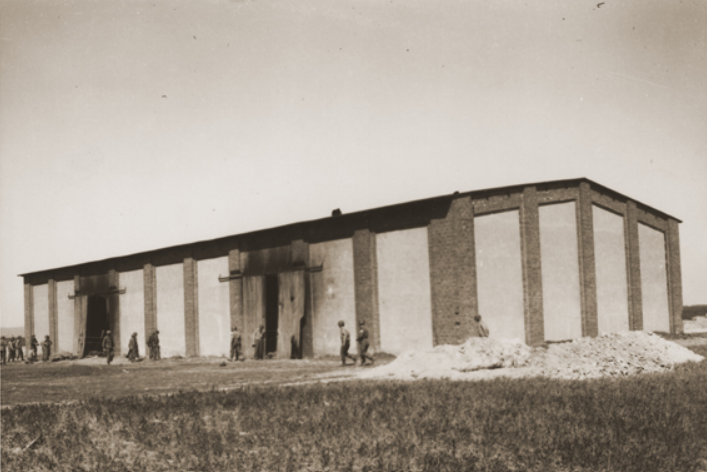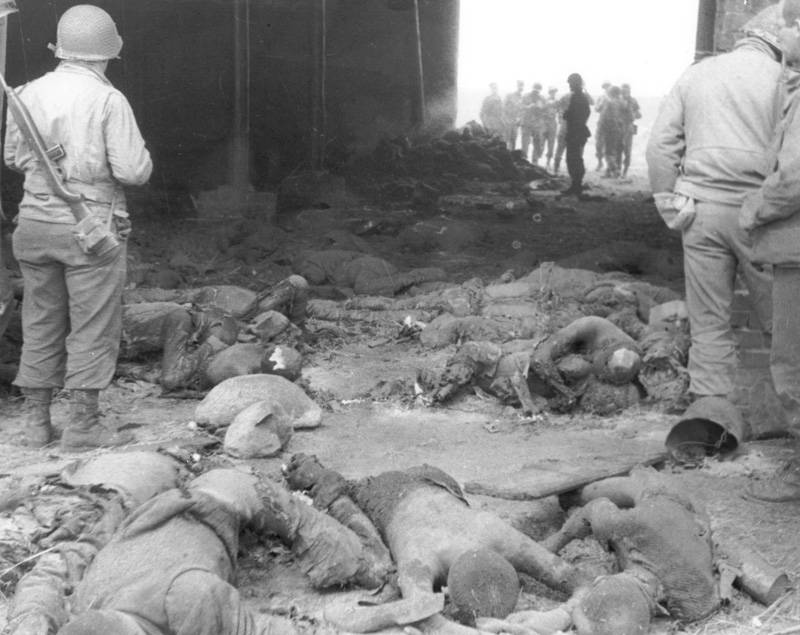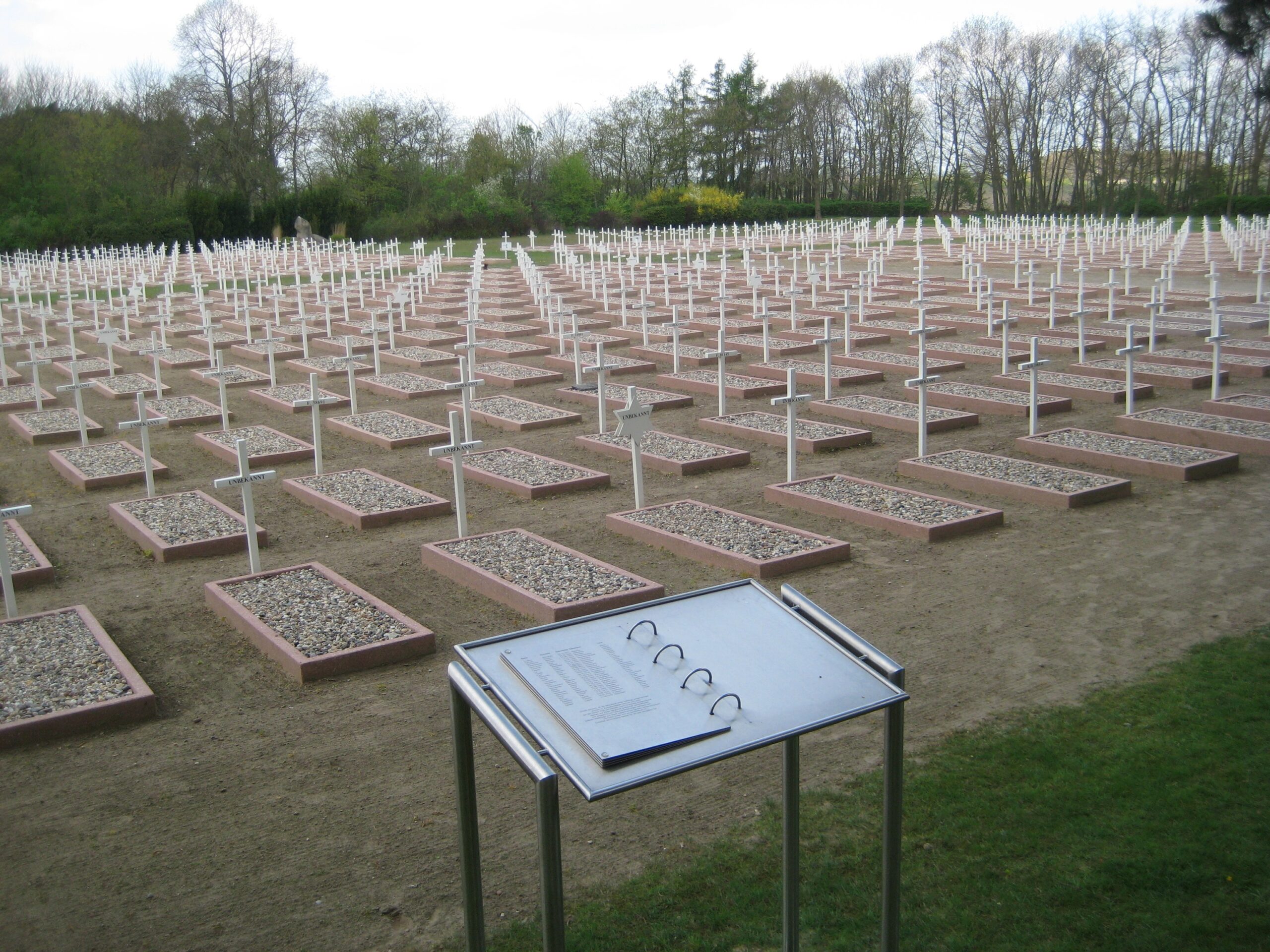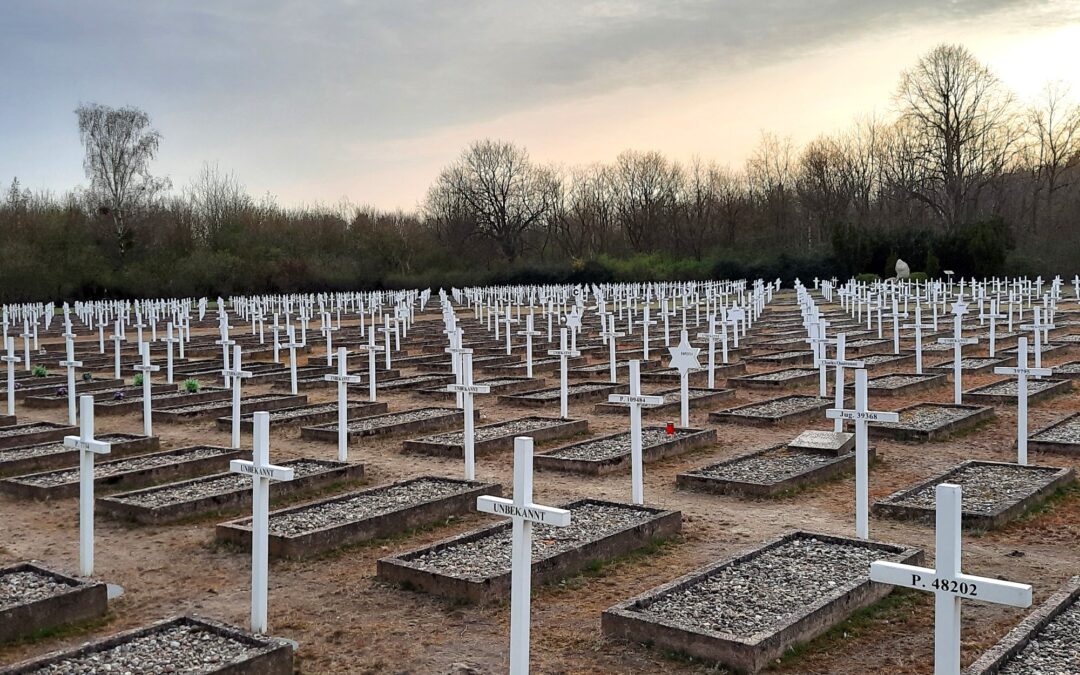Polish diplomats and local officials have marked the anniversary of a massacre that took place in Germany at the end of World War Two, and have also called on the German authorities to investigate the vandalism of victims’ graves that took place last week.
The massacre of over 1,000 slave labourers – the largest number of whom were Poles – occurred in the town of Gardelegen on 13 April 1945, less than a month before the surrender of Nazi Germany brought the war in Europe to an end.
As Allied forces advanced, the Nazi SS had been moving concentration camp prisoners towards the interior of the Third Reich. One such group was being transported from the Mittelbau-Dora and Hannover-Stöcken camps.
After the transport stopped in Gardelegen, over 1,000 of the prisoners were – with the help of the local population – herded into a barn that was then sealed and set on fire. Those who tried to escape were shot dead.

The barn in Gardelegen in which over 1,000 prisoners were burned alive
While the perpetrators had then hoped to destroy evidence of the crime, the rapid advance of the US 102nd Infantry Division – which arrived just one day after the massacre – meant that Allied forces discovered and documented the remains of the victims and were able to interview 11 prisoners who had survived.
The condition of the bodies made it impossible to identify most victims. But among the 186 whose nationality was determined, the majority were Poles.

US troops viewing the remains of victims in the barn
The US forces also ordered the local population to give a proper burial to the victims, creating a cemetery and memorial to them.
In 1947, a US military tribunal sentenced the SS officer overseeing the transport, Erhard Brauny, to life in prison. However, the Nazi district leader in Gardelegen responsible for the massacre, Gerhard Thiele, went into hiding after the war and lived for decades under a false identity, thereby evading justice before his death.

The graves of the victims in Gardelegen
On Friday last week, the body that oversees the memorial to the massacre announced that a number of graves at the cemetery had been vandalised.
“Crosses and Stars of David were torn out from several graves and damaged,” announced the memorial. “[We] condemn this attack and…immediately filed a criminal charge [which] the police are investigating.”
Poland’s consul in Berlin, Marcin Król, later revealed that 24 graves had been desecrated and said that the Polish authorities “expect the German police to quickly identify the perpetrators of this crime”.
Miejsce pamięci Gardelegen poinformowało o zbezczeszczeniu 24 grobów na miejscowym cmentarzu, na którym spoczywa 1016 ofiar zbrodni z 13.04.1945 – w większości Polaków. Wyrwano lub uszkodzono krzyże i gwiazdy Dawida.
Oczekujemy, że 🇩🇪policja szybko ustali sprawców przestępstwa! https://t.co/qq00znQvk3
— Marcin Król, Konsul RP w Berlinie (@krol_rp) April 11, 2023
Yesterday, Król attended a ceremony to mark the 78th anniversary of the massacre, along with representatives of the local authorities and families of victims.
“This place shows the ruthlessness and dehumanisation of not only the SS and Nazi party, but above all of ordinary Germans, who, despite undoubted awareness of the imminent defeat of the Third Reich, participated in one of the greatest crimes committed against Poles at the end of the war,” said Król.
“The tragedy is intensified by the fact that Gerhard Thiele managed, like many other Nazi torturers, to avoid punishment and lived to a peaceful old age,” added the consul, quoted by the Polish Press Agency (PAP).
Wir danken ganz herzlich @krol_rp von @PLinDeutschland für seine Teilnahme als Repräsentant der Republik #Polen und stellv. für @dpawlos an der gestrigen Gedenkveranstaltung zum 78. Jahrestag des #Isenschnibbe-Massakers von #Gardelegen! Dziękujemy bardzo! #Gardelegen45 #Pamiętamy https://t.co/FS1ys6Q1Sy
— Gardelegen Memorial (@gfi_gardelegen) April 12, 2023
Around six million Polish citizens died during World War Two, representing 17% of the population, the highest proportional losses of any country. Around half those victims were Polish Jews with the remainder mostly ethnic Poles.
The current Polish government has recently launched a campaign to obtain up to $1.3 trillion in war reparations from Germany, arguing that Poland was never properly compensated for the enormous human, material and cultural losses it sustained.
The German government, however, argues that the issue of reparations was legally settled decades ago. In January this year it formally rejected Poland’s request for compensation.
Germany has formally rejected Poland's demand for war reparations, the Polish government has announced
Berlin informed Warsaw that it sees the issue as closed and does not intend to enter into negotiations
Poland says it will continue to pursue its claimhttps://t.co/Jwq4pkojIp
— Notes from Poland 🇵🇱 (@notesfrompoland) January 3, 2023
Main image credit: Polnische Botschaft in Deutschland/Ambasada Polska w Niemczech/Facebook

Daniel Tilles is editor-in-chief of Notes from Poland. He has written on Polish affairs for a wide range of publications, including Foreign Policy, POLITICO Europe, EUobserver and Dziennik Gazeta Prawna.




















